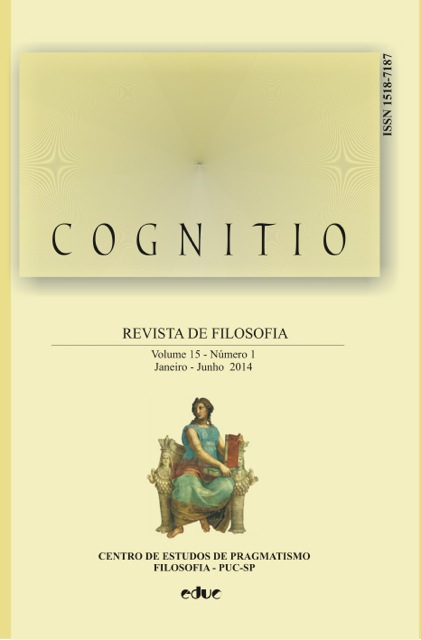Atração Intelectual e Afinidades Eletivas: A Proveniência das Categorias Peircianas em Friedrich von Schiller
Palavras-chave:
Metodologias Nominalistas vs. Sinópticas, Proveniências e Convergências, Cartas Estéticas de Schiller, Spiel-trieb, Tuismo de Peirce, Sistema Arquitetônico, Primeiridade, Abdução, Normatividade de Estética, Devaneio, Uberdade.Resumo
Os prolegômenos metodológicos do artigo afastam abordagens nominalistas estreitas para Peirce em benefício de seu próprio estilo sinóptico (sinequístico-sinergístico) de construção da sua arquitetônica categorial em diálogo com as principais ideias na história da filosofia. Como um “primeiro” caso, este artigo foca sua proveniência quanto à convergência com as Cartas Estéticas de Friedrich von Schiller no Tuismo inicial de Peirce e sua lembrança de Schiller em sua fase madura. Uma exegese aprofundada revela que o clássico de Schiller contém as sementes da categorização tricotômica de Peirce da experiência em três vertentes confluentes de seu sistema de desenvolvimento: 1) sua categoria fenomenológica da Primeiridade – correspondendo ao sentido de “aparência pura” de Schiller no Spiel-trieb, como se desenrola na priorização de Peirce da inferência abdutiva na investigação e no componente ticástico da sua metafísica cosmológica; 2) A estética como a “primeira” das Ciências Normativas; e 3) o conceito de Puro Jogo como “Devaneio” (Musement) em seu ‘Um Argumento Negligenciado para a Realidade de Deus’ (1908) e em ‘Um Ensaio visando nosso Raciocínio sobre Segurança e Uberdade’ (1913).









